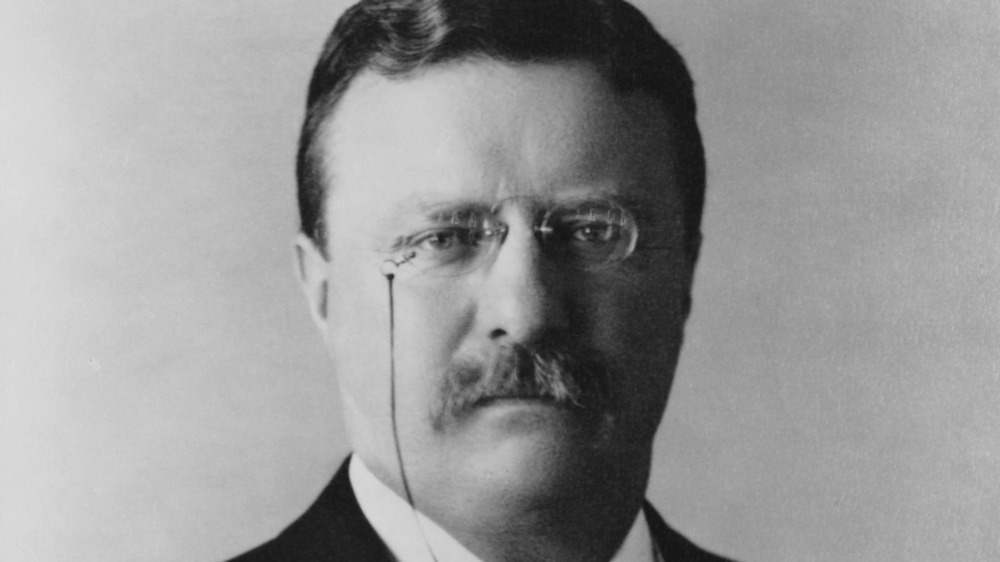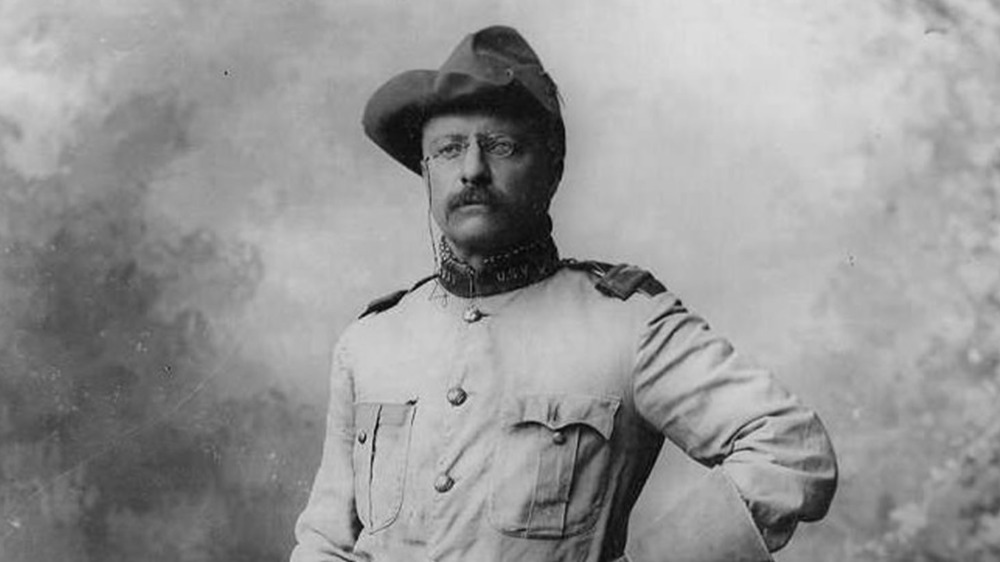The Tragic Same-Day Death Of Teddy Roosevelt's Wife And Mother
On February 14, 1880, Theodore Roosevelt likely felt on top of the world. On that day, he announced his engagement to a woman he was madly in love with. According to Biography, he later boasted that he did "not think a man ever loved a woman more than I love her." He was also in his final semester at Harvard University, from which he would graduate magna cum laude.
Four years later, February 14 would mark the worst day of his life. Roosevelt was serving in the New York state assembly in Albany and had recently received news that his wife, Alice Hathaway Lee Roosevelt, had safely delivered a baby girl. However, the celebratory telegram was soon followed up with one that was much more serious: both his wife and mother had fallen seriously ill.
His mother, Martha "Mittie" Roosevelt, had been suffering from what the family had assumed was a cold. However, it turned out that she was actually sick with Typhoid fever, a bacterial illness that was so deadly that it accounted for more deaths among soldiers than combat at the time, per Medical.net.
Roosevelt managed to make it home just a few hours before his mother died. In his diary, the future president referred to Martha as "a sweet, gracious, beautiful Southern woman, a delightful companion and beloved by everybody."
The gruesome day only got worse after Alice died hours later
Eleven hours later, Teddy Roosevelt's wife died from Bright disease, a kidney condition that had been concealed due to her pregnancy. She was just 22 years old at the time.
Roosevelt was known for his complete devotion to his wife, and in his journal shortly before his wedding, he had written, "my happiness is so great it makes me almost afraid," Biography quoted.
The same journal likewise showed Roosevelt's complete despair after the deaths of his wife and mother. Half the page was covered with a large "x." Below, he had written, "the light has gone out of my life."
Unsurprisingly, the emotional toll of the tragedy had a severe effect on his psychological wellbeing.
"Theodore is in a dazed, stunned state," noted Arthur Cutler, one of Roosevelt's friends. "He does not know what he does or says."
Theodore Roosevelt ended up leaving New York and going out west for three years to manage his grief. He never mentioned his wife again, and even referred to his daughter, who had been named Alice in tribute, as "Baby Lee."
"There can never be another Alice to me, nor could I have another, not even her own child, bear her name," Roosevelt confessed to a friend, per Biography.

